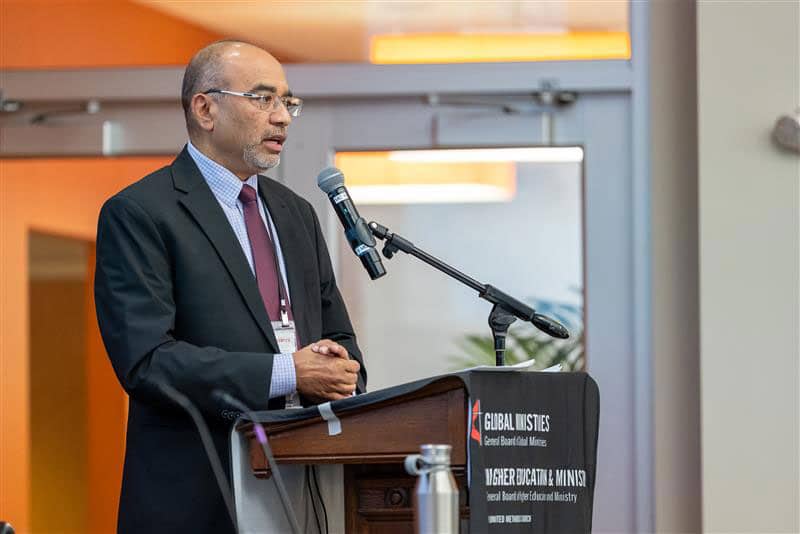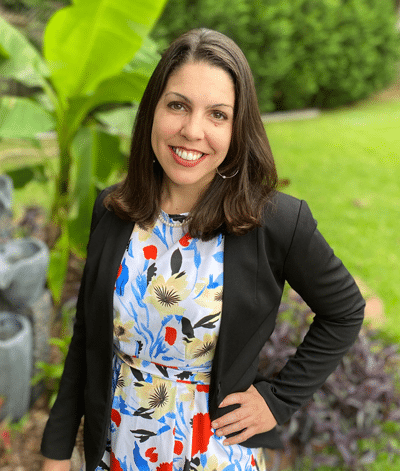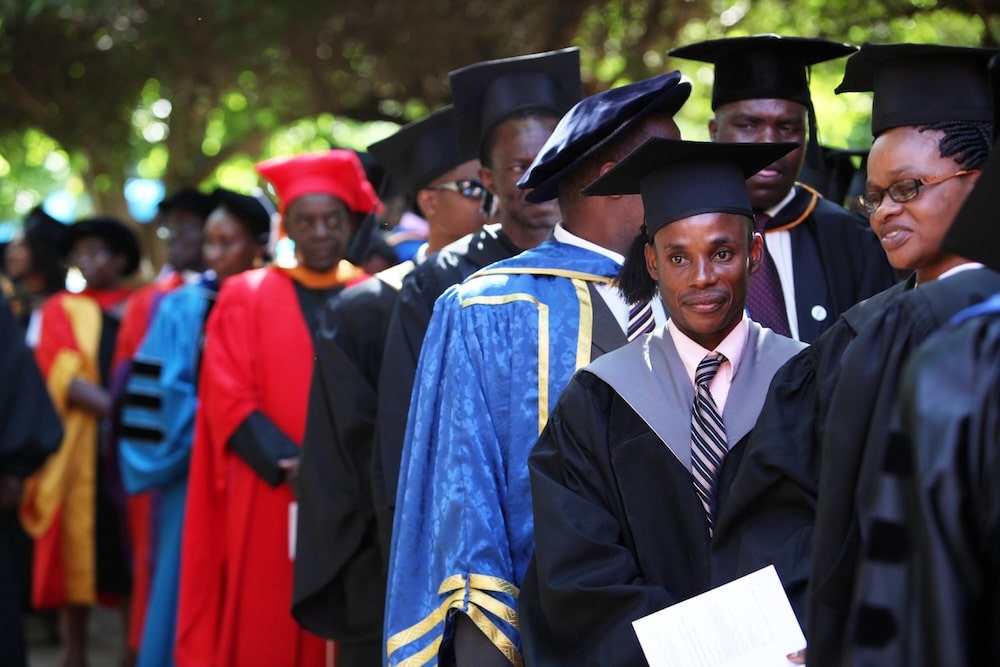Making Good News Travel
How does The United Methodist Church form Wesleyan leaders amid environmental, societal, and other human issues?
In the Philippines, leaders find theological grounding and leadership skills to navigate uncharted waters through the Central Conference Theological Education Fund (CCTEF).
In the war-torn region known as the Mindanao, a series of earthquakes destroyed many schools, hospitals, hotels, and houses in 2019. More than 30,000 people were moved into evacuation areas, resulting in deep trauma for children, adults, and senior citizens. In 2023, some still live in these evacuation centers as reconstruction and rehabilitation move slowly. With such an overwhelming tragedy, how are local faith leaders aiding in recovery and sustainability?
As the college president of Southern Philippines Methodist Colleges, Inc. (SPMCI), Framer C.P. Mella knows she does not face these challenges alone.
SPMCI, located in Southern Mindanao near Mount Apo, is locally known as The Wellness Garden Campus. SPMCI conducted a series of psychological first aid and stress debriefings following the earthquakes with the people affected. It was then that KaTAmbayayong was born, bringing theological education together with Christ-embodied presence.
KaTAmbayayong is a team of volunteers (faculty, staff, students, and friends) who help victims of natural and human-made calamities. KaTambayayong travels to the sites of disasters and, since 2019, has assisted in North Cotabato and Matanao, Davao del Sur (earthquakes); Surigao City (Typhoon Odette), Datu Odin Sinsuat (flash floods), and many more. Recently, the local government unit of Cotabato Province sought the help of KaTambayayong to conduct Psychosocial and Spiritual First Aid in its three municipalities because of flash floods.
KaTAmbayayong and SPMCI’s other expanded programming (through their Center for Pastoral Care and Health and Wellness (CPCHW), the Center for Indigenous Knowledge, Arts, Traditions and Spiritualities (CIKATS), the Kidapawan Institute for Ecumenical Studies, Spiritual Formation and Intercultural Spirituality (KInESIS)) foster ongoing leadership in trauma recovery, peacebuilding, and theologically-grounded creation stewardship. Wesleyan roots in practicing the means of grace are flourishing.

SPMCI uses innovative radio strategies to extend learning within six provinces. Although they do not offer communication courses, their students and faculty have created three radio programs that have extensive listenership. Whether promoting gender-fair education and life practices, addressing current issues through a faith lens, or providing mental health support, these programs are yet another way they take education beyond the walls of SPMCI.
Learn more about the Central Conference Theological Education Fund and how to apply here
Reaching Learners Where They Are
Directing higher education was complex during the pandemic, as quarantines and lockdowns stopped or limited in-person classes. Still, Union Theological Seminary in the Philippines successfully navigated the difficulties because of its earlier adoption of communications strategies and technology. Church workers were offered continued theological education and the expanded element of a larger global community.
Established with support from CCTEF, Union Theological Seminary’s OPEN seminary (UTOS) provides comprehensive distance education systems to help people achieve their goals through Bachelor of Ministry, Master of Ministry, Doctor of Ministry degree programs, and certificate programs, with a network of learning centers. Implemented in partnership with the IEMELIF (Iglesia Evangelica Metodista En Las Islas Filipinas) Bible College, twelve hybrid Master of Divinity students (three women) were the first to graduate in 2017, well before the pandemic.
The digital strategy was conceptualized to provide church workers with the technological access needed for quality higher education so workers can effectively respond within the church and society.

Off-campus graduate students in the Master of Theology and Doctor of Ministry programs regularly now access a catalog of e-books even as staff transitions from the UTS cataloging system to the LCC (Library of Congress Catalog) system. The pre-planning and strategic development of digital systems made community building possible during the pandemic. UTS hosted important online events such as “The Caregiving Role of Faith Communities in the Face of Covid-19,” “Managing Conflict: The Role of Faith Community,” and “Stress Debriefing for Bridge Students.” Bringing people together in unprecedented times for these essential topics helped people remember God’s faithfulness even as human suffering raged.
Caring for Faculty
When universities and colleges invest in technology, it’s not only students who benefit.
Through CCTEF, faculty are supported with their continued education and their efforts to offer the very best learning experiences possible. Faculty and staff participate in the forward-thinking vision for diverse settings. Moving ideas into reality affirms faculty and staff and provide experiences for growth in the process. Faculty continue their education and re-tooling in modular learning and learning management systems as they work to bring higher education online to students and the wider community.
Dedication to an embodied theology is present in both the teaching and the application of lessons learned, whether in the aftermath of earthquakes, during a pandemic, or experiencing human and societal conflict. It is in the walking that Christ’s life becomes visible in today’s world. This commitment makes good news travel.

Learn more about the Central Conference Theological Education Fund and how to apply here.
Related Posts
Report of General Secretary Roland Fernandes to the Board of Directors of Global Ministries and Higher Education and MinistryApril 10, 2025 | By Elliott Wright ATLANTA – Directors of two of The United Methodist Church’s program agencies, both international in scope, were challenged by their shared leader to strengthen their work...
“I am so grateful and humbled. This scholarship helps me fulfill my dream of attending college, and I look forward to continuing to grow my faith within the Methodist Church throughout college and beyond.” — Matthew Mertes, The Ohio State University Matthew Mertes is...
Haley M. Reardon to Lead Fundraising Efforts for Higher Education and Ministry and Global Ministries
Haley Reardon, chief development officer Haley M. Reardon joins the General Board of Higher Education and Ministry and the General Board of Global Ministries as chief development officer on March 24, 2025. Reporting to General Secretary Roland Fernandes, Reardon will lead both agencies in advancing their global...








